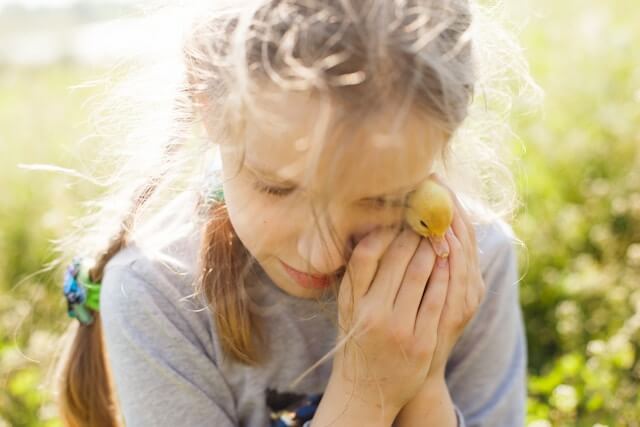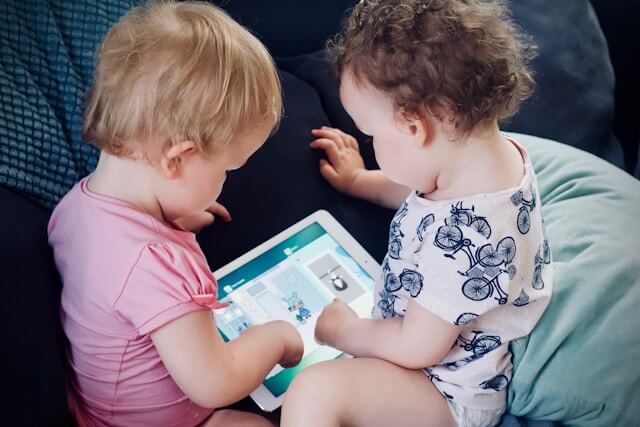Educating children about sex is one of those topics many parents shy away from. There is an unspoken discrimination against talks about sex because they don’t know the right age to teach their child. This is even though sex is something natural and we can’t escape from it.
Some parents think sex education and discussion are meant for adults only and therefore should be kept away from the kids. Being ignorant is more deadly than being informed. It is due to a lack of proper sex education, especially from the guardians, that leads to a large number of kids making avoidable mistakes.
Knowing the existence and consequences of a mistake makes it easier to avoid it. Children should receive sex education from an early age.
What is the Right Age to Start Educating Your Child About Sex?
So, at what age should you teach your child about sex? The short answer is to start as early as when they are three years old.
I know you may be wondering why and how to go about it at that early age. One of the benefits of starting early is that you can take the lead and build a stronghold in their lives against strangers and the media. The fact is, if you don’t catch them young, the media and strangers will do it.
While starting early is key, you shouldn’t sit a three-year-old down to have a full-blown discussion on sex. What you should do at this stage is lay the foundation and create an enabling environment. It helps them feel safe with and around you.
Start with the Basics
The first step in educating your child about sex is the basics at the very tender age. The basics are the bedrock of all knowledge. Here is where you introduce parts of the body to your child. Teach them about their body parts and their functions, including the reproductive system.
Many parents, when teaching their children about their body parts, make up amusing names for them. It usually looks like a smart approach to the parents, but in reality, that’s an erroneous move.
Don’t be shy to call the parts by their real names. No matter the language you are teaching with, always call them by their names.
Use visual aids such as pictures and diagrams to aid better understanding. For example, pointing at a penis or vulva depending on their gender and explaining that it helps us to pass urine and to feel pleasure. While teaching the parts of the body, explain to them the parts of their body that are regarded as private parts and why.
You shouldn’t be shy or ashamed to call them by their names when teaching your child, so they will not be nervous too and therefore can comfortably tell you things related to their body parts.
Explain Puberty
As your child grows, especially before they start experiencing puberty, it is important that you should start teaching them about it. Early education is crucial, as it will help your child easily adjust to changes and experiences. When they get to puberty, and remember that you have told them about it earlier, it makes them feel safe and loved. It is a way of letting them know that you look out for them.
When explaining puberty, just like teaching the basics, you should tell them all they should know. They must understand that puberty is a stage every adult today experienced and that you were not an exception. Knowing that you have experienced it also is a needful assurance.
Let them know the changes they may notice during puberty such as the growing of hair in new places, the change in the size of some parts of their body and that they may experience change in the sound of their voice.
Also, explain that the experience isn’t the same for everybody. They should know that different people have different bodies; therefore, some people may experience it earlier than others.
Explaining puberty doesn’t only prepare your child but strengthens the bond you both share.
Also Read: Follow These Strategies to Raise a Smart and Confident Child
Teach Safe and Unsafe Touch and Discuss Consent
Understanding consent and safe and unsafe touch is important to how your child navigates society and life. It is always better for your child to learn this from you than from the media or strangers.
Your child should know that any touch on their private parts is known as unsafe and shouldn’t be accommodated. Furthermore, explain that unsafe touch isn’t limited to touches on their private parts but includes any touch that makes them uncomfortable.
Teach them that their body is theirs and they have the sole authority to decide who and where they should be touched. Let them know that once they feel uncomfortable with a touch, they should politely but confidently tell the person and go ahead to remove their hand.
Teach Body Positivity
Many people grow up not loving and accepting their bodies the way they are, and that has led to regrets. Teach your child self-love and self-acceptance. Let them know that people are different with different bodies, and they are beautiful and perfect the way they are.
They should not compare their body to others. Teach your child to prioritize their health and happiness and not care what others do or think.
Body positivity helps instill confidence in your child. They learn to accept and love themselves the way they are and to push off external opinions about their body.
Discuss the Importance of Making Their Own Decisions
Your child is capable of making decisions no matter how young they are, and they should know it. Let them know that they can make decisions and how important it is that they always make their own.
Tell them to not allow others to decide for them, especially concerning their body. Teach them all to recognize when they are pressured by the opinions or actions of other peers and how to handle it.
Kids can handle peer pressure by identifying it and where it comes from. When they have recognized the pressure and its source, they can take their time to think clearly while focusing on their values, such as beliefs and goals.
Encourage them to always speak up and communicate their feelings. When what they do not want is presented or suggested to them, they should politely communicate their displeasure and lack of interest.
Teach them also to not be shy and to always seek support from trusted adults and friends because nobody knows it all. When with them, practice decision-making roles to help them become confident in their ability to take control and make decisions.
Control What Your Child Watches
This one is for the parents: do not pretend you don’t know that what your child watches can affect them. You don’t want to be teaching one thing while the media is teaching them the opposite.
Do not make the mistake of allowing your child to watch anything at any time. Take your time to go through the contents they consume and let them only watch the ones you allow them to.
There are apps for kids, such as YouTube for Kids, and also parental control features on many other media platforms. Utilize parental control features if you must leave them with your phone or any electronic device.
Let them go through you directly or indirectly before consuming any content.
Conclusion
Your child of 3 years of age isn’t too young to be introduced to sex education. Early education is crucial because it is through it that they build their views and create their realities about sex.
Always start with the basics and don’t sugarcoat words or try changing the names of anything. Teach them what their body parts are and are called, because if you don’t, strangers will teach them.
Mould them to be confident, expressive, and decisive. Let your child know that puberty changes are normal and natural and that they own their body.
Tell them how beautiful and perfect they are. Teach your child that everybody is different; therefore, it is okay for them to look different from others. Equip your child with the right information from an early age for a better outcome as they grow older.















Well-done, I am blessed by this. I applaud you 😊
Thank you 😊 Please share
This is a good one
Thanks so much for teaching us (indeed this is really educative and will really help God bless you Amen
I’m glad you got value. Please share
Wow! Am impressed with your teaching, nice one 👍
I’m glad you got value, please share
An interesting
I’m glad you got value, please share
How do l get my videos and materials
Send a WhatsApp message to +2348101854400
I am following Ijeoma and her lessons really helped me in teaching my boys
Thank you so much 😊